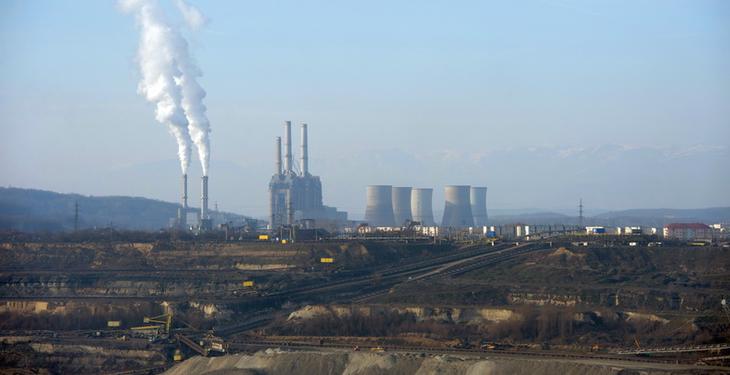Romania is preparing to send to Brussels, in the coming days, the Territorial Plans for a Just Transition, documents through which it hopes to attract non-reimbursable financing worth 1.97 billion euros from the Just Transition Fund. About 6 counties, the most affected by the transition to a climate-neutral economy, would benefit from these funding. But the plan for Gorj County is in question, says Greenpeace.
Following the submission of the National Recovery and Resilience Plan (PNNR) to the European Commission, the Ministry of European Investments and Projects (MIPE) will send to Brussels the plans for decarbonisation and economic development of Hunedoara, Gorj, Dolj, Mureș, Galați and Prahova counties, responsible for the highest greenhouse gas emissions.
The local authorities together with the members of the working group (administrative-territorial units, business environment, Oltenia Energy Complex, environmental NGOs) and the Ministry of European Investments and Projects finalized the plan for Gorj county, but the plan in its current form is incomplete without information regarding the restructuring of the Oltenia Energy Complex (CEO). In the absence of this information, there are very high chances that the plan will not be approved, and the development opportunities of Gorj County, through the Just Transition Fund, will be blocked, say the officials of the environmental NGO.
“Representatives of the Ministry of Energy and the CEO refuse to make public the latest version of the Restructuring and Decarbonisation CEO Plan, although it was sent to the European Commission and presented to the unions last week. There is no legal argument (at European or national level) or any restriction that would prevent the transparency of the new CEO restructuring plan, so necessary for accessing European funds “, they say.
In fact, the company made public last year the first version of the restructuring plan, so the publication of an update of the plan is natural, especially in the conditions of endangering European funding of almost 2 billion euros.
“The chance of the people of Gorj County for a better life is to access all available funding, and this can be done if the management of the Ministry of Energy and the Oltenia Energy Complex really assumes the important role they have in this energy transition. The publication of the CEO’s restructuring plan is crucial for the completion of the PTTJ for Gorj. We do not understand why the central authorities raise hurdles and work only behind closed doors. At this moment, they only make more difficult the process by which Gorj County could access faster the funds from the Just Transition Fund, so necessary for the development of local communities and the decarbonization of the region,” said Vlad Cătună, Greenpeace Romania campaign coordinator.
